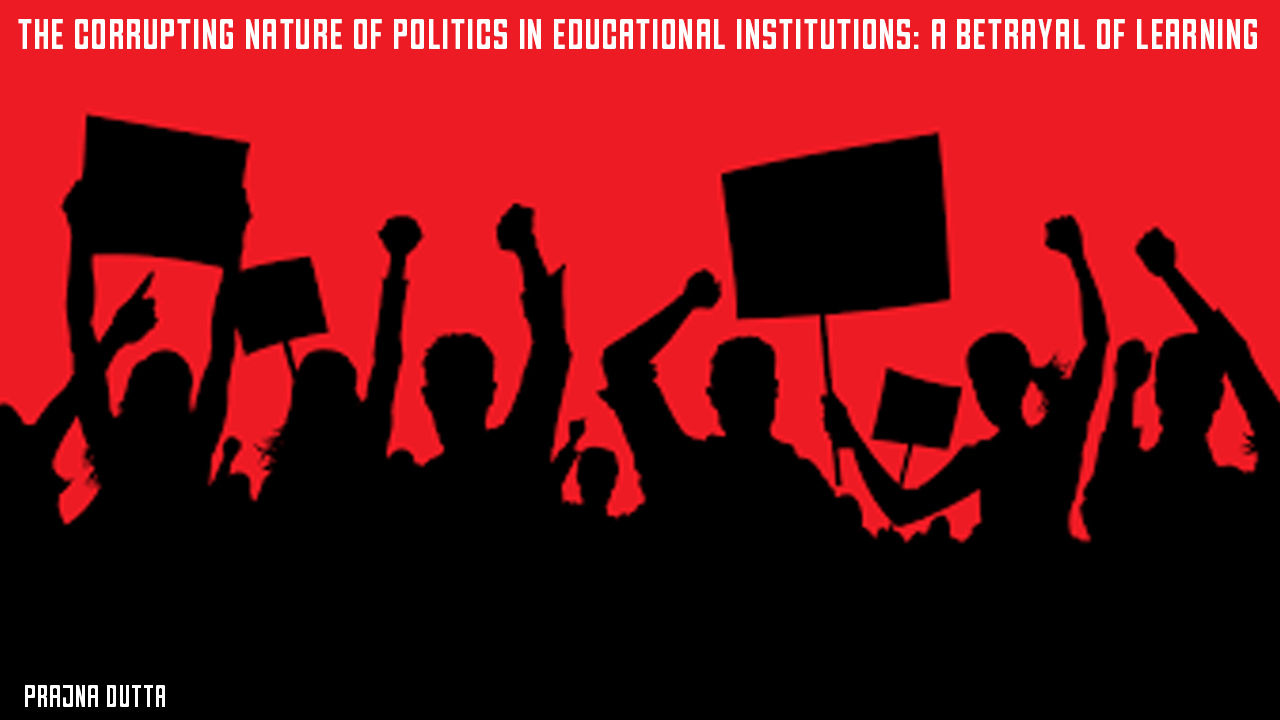Introduction:
Educational institutions have long been considered sanctuaries of knowledge, where young minds are nurtured and shaped for a better future. However, the infiltration of politics into the realm of education has cast a dark shadow on this noble pursuit of learning. The corrupting nature of politics in educational institutions is an alarming trend that threatens the integrity, autonomy, and quality of education. This article explores the detrimental effects of political interference on the educational landscape and underscores the urgent need for reform.
1. Dilution of Academic Freedom:
One of the most significant consequences of political interference in educational institutions is the erosion of academic freedom. Education should be driven by critical thinking, intellectual curiosity, and the pursuit of truth. However, when politics enters the equation, academic decisions become subject to external pressures and agendas. Faculty members may feel compelled to conform to political ideologies, stifling diverse perspectives and stifling intellectual progress. As a result, the pursuit of knowledge and the free exchange of ideas, which are fundamental to education, are compromised.
2. Nepotism and Favoritism:
Political interference in educational institutions often paves the way for nepotism and favoritism. Positions of authority and influence may be awarded based on political connections rather than merit, leading to the appointment of underqualified individuals. This not only undermines the credibility of educational institutions but also diminishes the quality of education provided. When key decisions are driven by political motives rather than educational expertise, the overall standard of teaching and research suffers, ultimately harming the students and their future prospects.
3. Distortion of Curriculum:
The politicization of education can also result in the distortion of the curriculum. Political interests may lead to the inclusion or omission of specific subjects, historical events, or viewpoints to promote a particular narrative. This narrowing of perspectives restricts students' exposure to diverse ideas, hindering their ability to think critically and form well-rounded opinions. Education should foster independent thinking and equip students with the tools to navigate a complex world, but political interference can undermine these goals by promoting biased or incomplete information.
4. Misallocation of Resources:
Political interference often diverts educational resources away from their intended purpose. Budgetary allocations, scholarships, and research funding may be influenced by political considerations rather than academic needs. This misallocation of resources can have severe consequences, undermining the development of infrastructure, research capabilities, and educational programs. Ultimately, students are deprived of the opportunities and resources they need to receive a quality education and reach their full potential.
Conclusion:
The corrupting nature of politics in educational institutions poses a significant threat to the integrity and purpose of education. Academic freedom, meritocracy, and intellectual diversity are essential pillars of educational institutions that must be protected from political interference. To safeguard the quality and autonomy of education, it is crucial to establish transparent governance structures, strengthen accountability mechanisms, and promote the principles of merit and expertise in decision-making processes. Only by reclaiming education from the clutches of political agendas can we restore the true purpose of educational institutions as beacons of knowledge, intellectual growth, and societal progress.

Comments